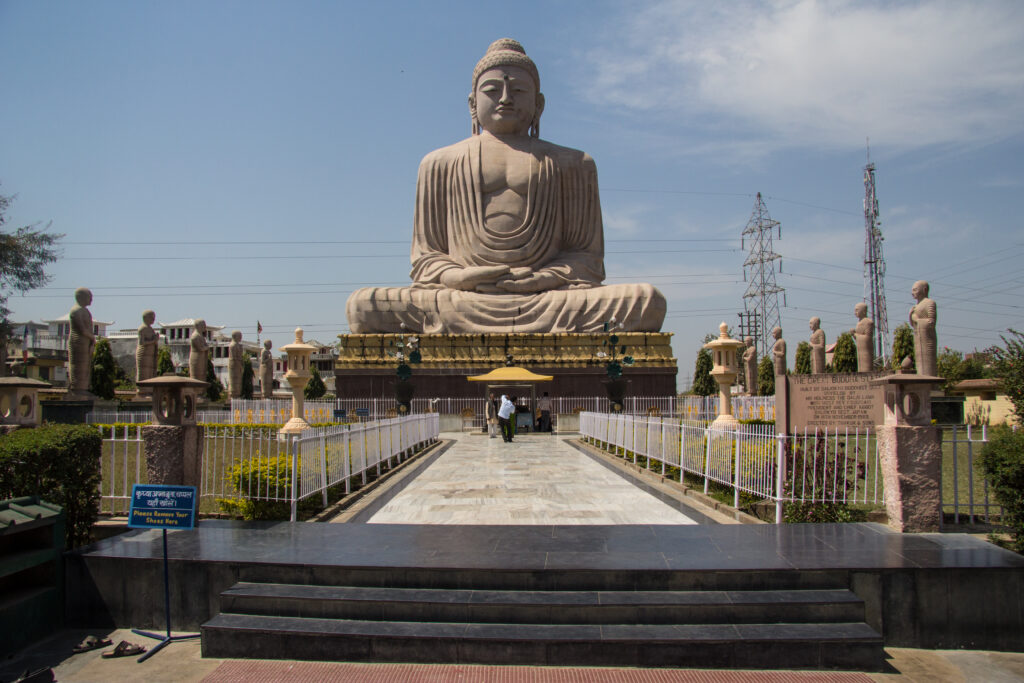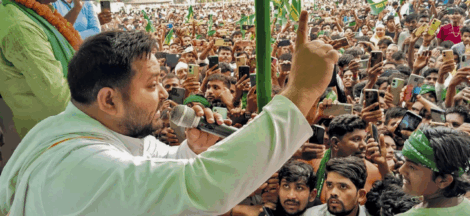The Supreme Court declined to hear a petition seeking exclusive management of the Mahabodhi Temple in Bodh Gaya, dismissing it as improperly filed under Article 32 of the Constitution and directing the petitioner to approach the Patna High Court instead. A bench of Justices M. M. Sundresh and K. Vinod Chandran said the matter fell outside the court’s discretion for direct jurisdiction and granted liberty to the petitioner to proceed in the appropriate forum.
The petition, filed by Sulekhatai Nalinitai Narayanrao Kumbhare—who previously served as Maharashtra minister of state and practices as an advocate—challenged the constitutionality of the Bodh Gaya Temple Act, 1949, on grounds that the current management structure, which balances Hindu and Buddhist members, infringed upon the religious rights of Buddhists. Counsel for the petitioner requested the Court to strike down the Act as ultra vires the Constitution. The bench, noting the procedural lapse, responded: “Why don’t you do it before the high court? How can we issue mandamus?”.
The Bodh Gaya Temple Act, passed in 1949, established a management committee comprising eight nominated members—equally drawn from Hindu and Buddhist communities—with the Gaya District Magistrate serving as an ex officio chairman. Its creation followed a long legal campaign initiated by the Maha Bodhi Society in 1949 to shift control from hereditary custodians to a state-run body that included both religious communities. A 2013 amendment allowed a non-Hindu magistrate to chair the committee, removing the prior obligation for the position to be held by a Hindu.
Proponents of Buddhist-only control argue that the present committee dilutes their administrative rights, citing Articles 25, 26 and 29 of the Constitution, which guarantee freedom of religion and institutional autonomy to minority communities. They contend that the temple, revered as the place where Gautam Buddha attained enlightenment, should come under the stewardship of Buddhist custodians consistent with spiritual lineage.
This petition follows a similar move earlier in the year by Rashtriya Lok Morcha leader and former Union minister Upendra Kushwaha, who demanded an amendment to the 1949 Act to vest temple control exclusively with Buddhists. That plea, too, was rejected by the Supreme Court, with the bench reiterating that the petitioner must seek remedy before the high court.
The Mahabodhi Temple, inscribed as a UNESCO World Heritage site in 2002, stands at the location believed to be where Gautam Buddha attained nirvana. The complex comprises a 55‑metre central temple tower, the sacred Bodhi tree, the Vajrasana, lotus pool and several ancillary stupas, encircled by protective enclosures. Its management has long been a point of contention, with Buddhist monks staging hunger strikes earlier this year demanding full Buddhist oversight of its administration.
Analysts note that the Supreme Court’s refusal to exercise its writ jurisdiction may signal judicial restraint in matters touching on religious administration, deferring to high courts for venue-specific adjudication. Observers also anticipate renewed filings in Patna, given the bench’s explicit invitation.




 Putin Launches Mass Production of Mach‑10 Hypersonic Missiles
Putin Launches Mass Production of Mach‑10 Hypersonic Missiles 